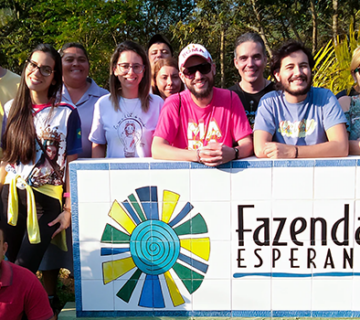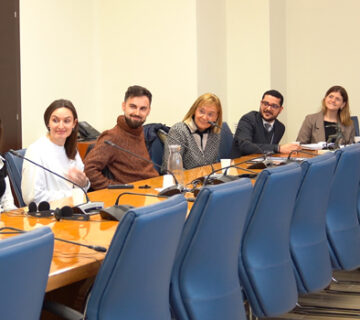 Today young people are able to have quite valid international experiences. Through social networks they are able to meet in the name of common ideals. In this sense, how do you see the role and significance of the Genfest today?
Today young people are able to have quite valid international experiences. Through social networks they are able to meet in the name of common ideals. In this sense, how do you see the role and significance of the Genfest today?
After twelve years since its last edition, this Genfest was quite awaited. And the young people taken a year of Genfest for themselves, extending from 1 May 2012 to 1 May 2013, in order to show that both are part of it – that of grand international events and that of daily life, which they also share on the web.
In his message to the 45th World Communications Day (2011), Pope Benedict XVI makes a very clear analysis of both the potential and the limints of social networks in which young people are immersed, and he invites Christians to be there in creative ways, “because this network is an integral part of human life. “The web,” says the Holy Father, “is contributing to the development of new and more complex intellectual and spiritual horizons, new forms of sahred awareness.” On the other hand, he underscores that “It is important always to remember that virtual contact cannot and must not take the place of direct human contact with people at every level of our lives.” We are also convinced of this (. . . ), young people long for authentic relationships, “globalizing” I would say, realtionships that engage the entire person. It is only through direct contact that you can fully experience the joy of an encounter with another person, the challenge and richness of the diversity, the power of a shared ideal that you can live for together. The Genfest is a moment in which to see already realized the unity and brotherhood that these young people believe in and live for.
The Movement places itself before this challenge aware of the gift that God has given to it, the charism of unity, which is more than ever in keeping with humanity’s call to live as one family, in an interdependence and solidarity that this new cultural situation hastens and underscores (. . . ). This Genfest, not only as an event, but also as a phenomenon of sharing that the youths have begun in the preparations and that continues through concrete projects, is an important step, an experience that will provide significant insights. And it is especially interesting to bring this reflection ahead, young people and adults together.
Up until now the Genfests have been held in Rome. The choice of a Central European country, the city of Budapest, does this contain some special message?
Certainly, a powerful one! For the Movement first of all, it is a new phase in which we are recognizing a need to rediscover together the special riches that each land and people can offer to the world symphony (. . .) It is in the DNA of Hungary, Budapest in particular, part of its history, to search for the unity in diversity: Budapest is the “bridge city” par excellence. I think this was the most favourable place to send a message to today’s world that universal brotherhood is possible, while saving the richness of each individual.
Now that Genfest is over and you are taking scale, how does it scale?
I think that one of the features of this Genfest has been to give a new impulse to our trust for one another and to the complementarity among the generations that teach us much (. . .). I can say that it leaves me with great hope and joy at having seen the radical and concrete committment of these youths. They accepted with great involvement the invitation to aim high, to be on God’s side and to give their own irreplaceable contribution to the society, risking everything, beginning with loving each neighbour without expecting a return. Their bright and joyful visit has transformed Budapest and many have felt it and thanked them for it by joining in the march. Their return to their various homelands will bring a wave of love and joy into the whole world (. . . ).
Source: Tünde Lisztovszki/Magyar Kurír: http://www.magyarkurir.hu/node/41764
 |
 |
 |
We thank our sponsors |
||


 Italiano
Italiano Español
Español Français
Français Português
Português



No comment